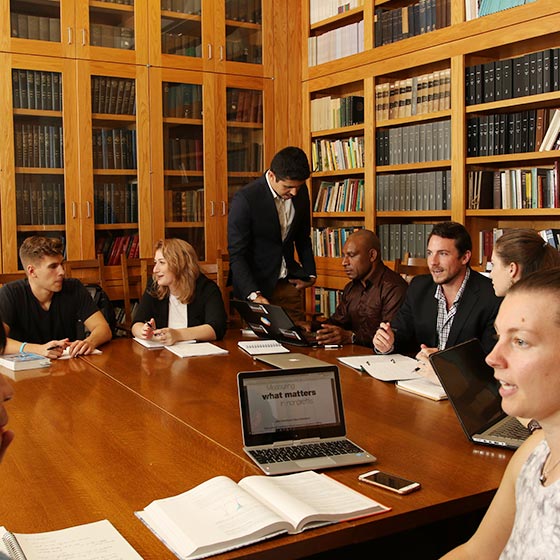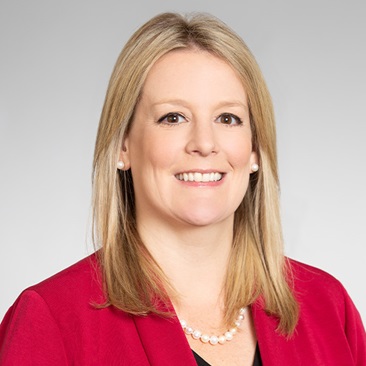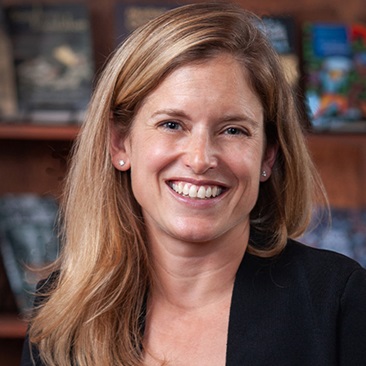complete master’s degree options in as few as 12 months
award-winning faculty of national and international renown
global professional network 37,000 strong
Explore Master’s Degrees
Public Administration
Master of Public Administration
Prepare to lead positive change through a rigorous yet efficient array of skills-building courses.
- On campus, in Syracuse, N.Y.
- 40 credits plus optional internships
- Complete full-time in 12 to 18 months
Executive Master of Public Administration—On Campus or Online
Fill gaps in your knowledge with a program tailored to your career goals—five to seven years of experience required. An online option for working professionals provides added flexibility.
- Online or on campus in Syracuse, N.Y., options (separate programs)
- 30 credits
- Complete part- or full-time in as few as 12 to 15 months
International Relations
Master of Arts in International Relations
Satisfy your curiosity about the world, and develop skills and knowledge to change it for the better.
- On campus, in Syracuse, N.Y.
- 40 credits with a required global internship
- Required career track selection to focus your studies
- Complete full-time in 18 months
Master of Arts in Public Diplomacy and Global Communications
Prepare to drive change in a range of international contexts through effective public and interpersonal communications. One powerful degree, two schools: the Maxwell School and the S.I. Newhouse School of Public Communications.
- On campus, in Syracuse, N.Y., and Washington, D.C.
- 43 credits with a required global internship
- Complete full-time in 18 months
Executive Master's in International Relations
Improve your leadership and management skills and global affairs knowledge—seven years of experience required.
- On campus, in Syracuse, N.Y.
- 30 credits
- Complete on a part- or full-time basis
Executive Master’s in International Relations in D.C.
Leverage the combined experience, knowledge and networks of two top-ranked institutions—the Maxwell School and the Center for Strategic and International Studies—and earn your degree while you work in D.C. Seven years of experience required.
- On campus, in Washington, D.C.
- 30 credits
- Complete part-time in as few as 18 to 20 months
Doctoral Program
PhD in Public Administration
Educate the next generation of public service leaders and conduct research that moves the field of public administration and policy analysis forward.
- On campus, in Syracuse, N.Y.
- 72 credits (36 credits beyond the M.A.)
- Full-time residential program, typically completed in 4.5 years
Department Admission Events
We offer a range of in-person and virtual opportunities to learn more about the Maxwell School and degree programs offered by the Public Administration and International Affairs Department, answer questions about the application process, and help you work toward your goals.
See All Department Admission EventsSchedule a One-on-One Meeting
to ask more in-depth questions not covered in the group information sessions. These individual meetings are informational in nature and are not admission interviews.
Request a MeetingStudy in Washington, D.C.
Our D.C. headquarters at the Center for Strategic and International Studies, top-ranked by the Global Go To Think Tank Index, gives students access to leading minds in the world of policy and international affairs, competitive internships, employment opportunities and a deeply engaged network of D.C.-based alumni.
Need a midcareer boost? Explore our Certificates of Advanced Study
We offer a variety of regional, topical and skills-based Certificates of Advanced Study (CAS) to help you focus and refine your expertise. Some CAS can be earned as part of a master's program while others can be earned independent of a degree. Learn to use data to formulate and analyze policy, deepen your knowledge of effective public management practices, develop techniques to promote collaboration and resolve conflicts, broaden your expertise in a specific region of the world, and more.

COVID Research Project Garners up to $2.2 Million From the National Institutes of Health
December 12, 2022
Associate Professor Emily Wiemers is the principal investigator of the team that includes her Maxwell School colleague, Marc A. Garcia.
Emily Wiemers, associate professor of public administration and international affairs and O’Hanley Faculty Scholar, is the principal investigator for a COVID-19-related research project that is expected to receive up to $2.2 million from the National Institutes of Health (NIH) over the next five years.
The project, titled “Tracing the Health Consequences of Family Support during the COVID-19 Pandemic,” is examining how the economic and health effects of the pandemic rippled across generations in American families.
Another Maxwell School faculty member, Marc A. Garcia, assistant professor of sociology, is a co-investigator along with I-Fen Lin of Bowling Green State University, Judith Seltzer of the University of California, Los Angeles, and V. Joseph Hotz of Duke University.
The project began in September 2022 and runs through May 2027. The NIH has provided $445,396 in funding for the first year.
The project will create a database of the economic, policy and health care contexts in which individuals experienced the pandemic. It will be linked to two nationally representative surveys of extended families to describe the degree to which family members shared the same challenges during the pandemic and how this affected their ability to help each other with time, money and shared housing, explains Wiemers.
“The project focuses on the pandemic’s immediate and intermediate effects on health, whether it exacerbated health disparities, and if family support mitigated negative health effects,” she adds.
Wiemers is a faculty associate in the Aging Studies Institute and a research affiliate in the Center for Policy Research and the Center for Aging and Policy Studies. Her work examines intergenerational ties and economic well-being across the life course.
Garcia is a senior research associate in the Lerner Center for Public Health Promotion and Population Health, a faculty associate in the Aging Studies Institute, and a research affiliate in the Center for Aging and Policy Studies. He researches physical and cognitive health disparities among older racial/ethnic and immigrant adults and longevity and mortality outcomes among older Latinx subgroups.
“Emily Wiemers, Marc Garcia and their colleagues demonstrate the relevance of evidence-based research to understanding the complex policy issues facing our communities and the nation,” says Dean David M. Van Slyke. “To receive funding from NIH that supports faculty research with the involvement of students to inform and shape how policy makers think about the consequences of health disparities and their impacts is a strong signal of support for the quality of Maxwell scholars and the importance of their work.”
This grant adds to the millions in funding for COVID-related research already garnered by Maxwell faculty in the past two years—much of it from the NIH.
Wiemers is leading a two-year project to investigate the challenges for adult children caring for aging parents. She’s also a co-investigator on a five-year project studying the connection between policy and psychological health; headed by Shannon Monnat, professor of sociology and Lerner Chair in Public Health Promotion and Population Health, the project also includes Maxwell co-investigator Jennifer Karas Montez, University Professor and director of the Center for Aging and Policy Studies, and Douglas Wolf, Gerald B. Cramer Professor of Aging Studies.
Garcia, meanwhile, has worked to assess how the pandemic has affected specific segments of the population. For instance, by comparing data on deaths in 2020 and 2021, he found that Blacks and Latinos died from COVID at much higher rates than whites, but some states—New York and Illinois, for instance—were much more successful at reducing that disparity than others, notably California.
Published in the Spring 2023 issue of the Maxwell Perspective
Related News
Research

Jul 2, 2024
Research

Jun 18, 2024
School News

Jun 12, 2024
School News

Jun 10, 2024

